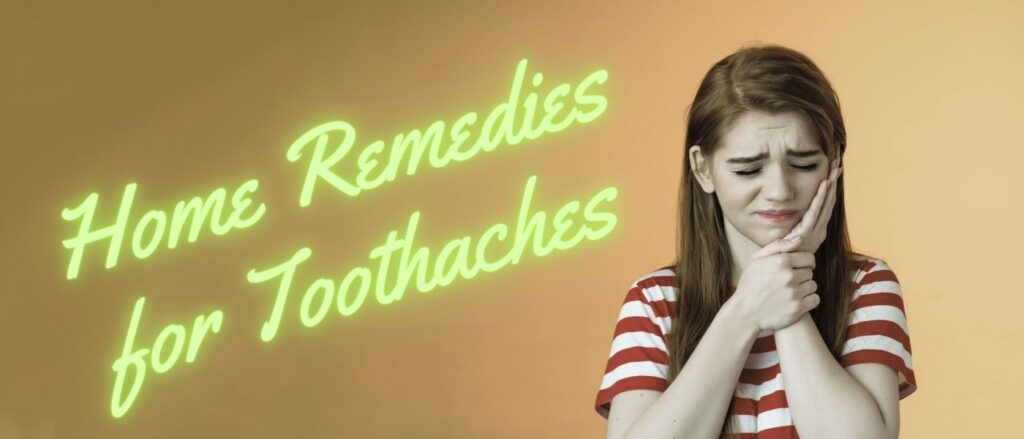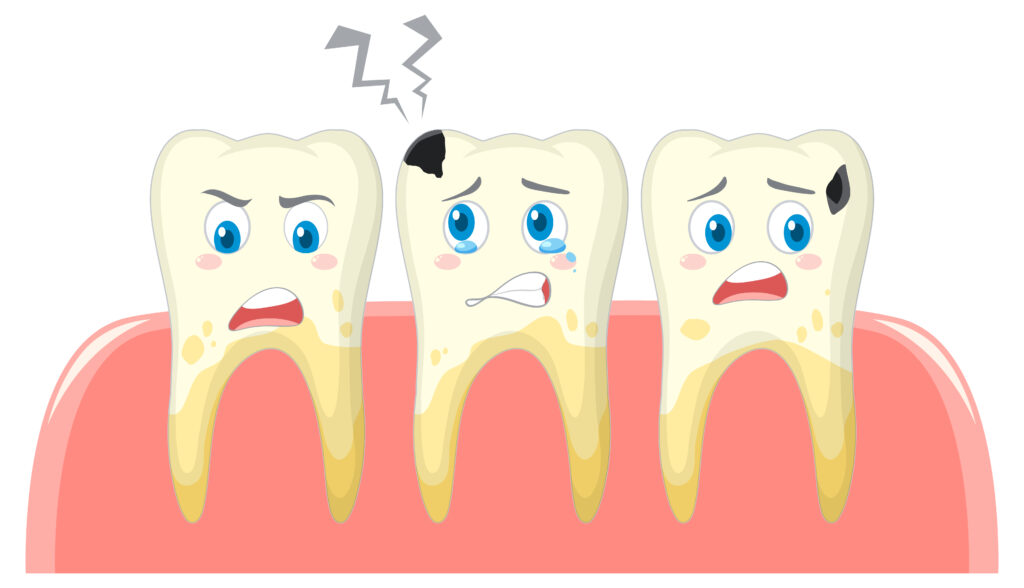In the quick-paced world of today, dental problems like toothaches can occur at any time. Home cures for toothaches can offer much-needed relief, whether you’re hoping to relieve the pain temporarily while you wait for a dental appointment or are simply looking for a quick fix. This article will examine various efficient and all-natural techniques to treat toothaches in the comfort of your own home.

Table of Contents – Home Remedies for Toothaches
Introduction
A severe toothache can be uncomfortable and interfere with regular activities. While a dentist visit is necessary for a long-term remedy, there are a number of at-home cures that can provide you with short-term pain relief. These treatments are not only simple to locate, but also affordable and secure.
Understanding Toothaches
Toothaches can cause anything from minor discomfort to excruciating pain. They develop when a tooth’s delicate inner pulp becomes irritated. Numerous conditions, such as cavities, gum disease, a fractured tooth, or an abscess, can cause this.
Common Causes of Toothaches
Before delving into the home remedies, let’s understand the common culprits behind toothaches:
Cavities: Tooth decay is a leading cause of toothaches. Bacteria erode the enamel, exposing the sensitive inner layers.

Gum Disease: Gingivitis or periodontitis can lead to gum inflammation, which can cause tooth pain.
Tooth Sensitivity: Some people have naturally sensitive teeth, making them more prone to discomfort.
Cracked Teeth: A cracked tooth, if left untreated, can result in persistent pain.

Home Remedies for Toothaches
a. Saltwater Rinse
A saltwater rinse is among the easiest and most efficient at-home treatments for toothaches. As a mouthwash, use a glass of warm water and half a teaspoon of salt. After 30 seconds of swishing it around in your mouth, spit it out. In addition to acting as a natural disinfectant, salt reduces inflammation and offers momentary comfort.
b. Clove Oil
Since ancient times, people have relied on clove oil, which has natural analgesic effects, as a treatment for toothaches. Gently rub the affected area with a cotton ball coated in a few drops of clove oil. Take care not to ingest the oil. The discomfort will temporarily subside when the clove oil numbs it.
c. Peppermint Tea
Tea made from peppermint leaves can help relieve toothaches. Make a cup of peppermint tea and let it cool to a pleasant temperature. Before spitting it out, give it a good stir in your mouth. The peppermint plant’s organic components include anti-inflammatory and pain-relieving properties.
d. Garlic
Garlic can help you fight dental discomfort in addition to keeping vampires at bay. Strong antimicrobial capabilities exist in garlic. A garlic clove should be crushed, then a pinch of salt should be added to make a paste. Directly apply this paste to the tooth that is hurting. The natural anti-infective and pain-relieving effects of garlic will assist in both.
e. Hydrogen Peroxide
To relieve discomfort and eliminate bacteria, mouthwash made of a hydrogen peroxide and water solution can be used. Swish a solution of water and hydrogen peroxide in your mouth for around 30 seconds. Remember to spit it out and then rinse your mouth with water.
f. Ice Pack
In order to reduce swelling and numb the injured region, use an ice pack. Place a tiny ice pack or a bag of frozen veggies on the outside of your cheek, close to the hurting tooth. Wrap the object in a clean cloth. After applying it for 15, remove it for another 15. Iterate as necessary.
g. Guava Leaves
Chewing on guava leaves can provide relief from toothaches due to their anti-inflammatory properties.
h. Ginger and Cayenne Paste
To make a paste, combine ginger and cayenne pepper powder with a little water. For pain treatment, apply it to the affected area.
i. Tea Tree Oil
Tea tree oil has antibacterial properties. Use a few drops in some water to make a mouthwash.
j. Baking Soda Paste
Apply a paste to the afflicted region by combining baking soda and water. Both pain relief and acid neutralization are benefits.
Preventing Future Toothaches
Prevention is always better than cure. Here are some steps to minimize the chances of future toothaches.
1. Maintain Oral Hygiene
Brushing and flossing regularly can prevent cavities and gum infections.
2. Dental Check-ups
Regular visits to the dentist can catch dental issues before they become painful problems.
3. Avoid Sugary Foods
The development of cavities can be aided by sugary foods and drinks. Your oral health can be significantly improved, and your chance of developing future toothaches can be decreased, by reducing your intake of these drugs.
When to Seek Professional Help
Home cures can offer quick relief, but if your toothache lasts more than a day or is accompanied by additional symptoms like fever, earache, or difficulty swallowing, you should see a dentist right once.

Conclusion : Home Remedies for Toothaches
Home cures for toothaches provide a practical and all-natural alternative to relieve dental pain. But they shouldn’t take the place of expert dental treatment. Keep in mind that these treatments are only temporary fixes, and it’s crucial to deal with the underlying tooth problem. You can keep a healthy, pain-free smile by practicing good oral hygiene and getting quick dental care when necessary.
FAQs related to Home Remedies for Toothaches
Are these remedies safe for children?
These remedies are generally safe for adults, but it’s best to consult a dentist for children with toothaches.
How often should I use these remedies?
Use them as needed for pain relief, but if the pain persists, consult a dentist.
Can I use multiple remedies at once?
It’s best to stick to one remedy at a time to determine which one works best for you.
Do I need to dilute hydrogen peroxide?
Yes, always dilute hydrogen peroxide with water before using it as a mouthwash.
Is it normal for my gums to bleed after using these remedies?
If your gums bleed excessively, stop using the remedy and consult a dentist immediately.
This article has looked at several natural home remedies for toothaches that can provide relief from dental pain. Keep in mind that while these treatments may offer short-term comfort, seeing a dentist is necessary for long-term solutions to your tooth problems. Avoid having toothaches by taking proactive measures to preserve good oral health and a pain-free smile.

I like the efforts you have put in this, regards for all the great content.
I appreciate your time spent reading my blog. Your engagement means a lot, and I hope you found the content enjoyable and insightful. Thank you for being a reader!
Thank you for your sharing. I am worried that I lack creative ideas. It is your article that makes me full of hope. Thank you. But, I have a question, can you help me?
Yes. You can share your questions. Thankyou
I don’t think the title of your article matches the content lol. Just kidding, mainly because I had some doubts after reading the article.
Thank you for your sharing. I am worried that I lack creative ideas. It is your article that makes me full of hope. Thank you. But, I have a question, can you help me?
Thank you for your sharing. I am worried that I lack creative ideas. It is your article that makes me full of hope. Thank you. But, I have a question, can you help me?
Can you be more specific about the content of your article? After reading it, I still have some doubts. Hope you can help me.